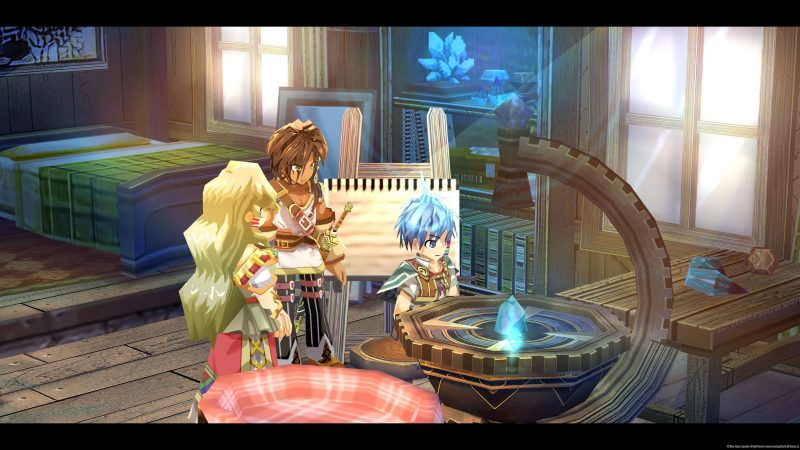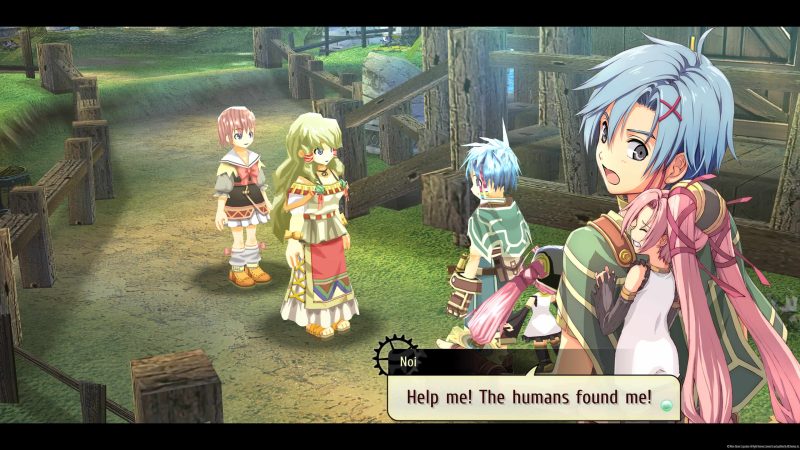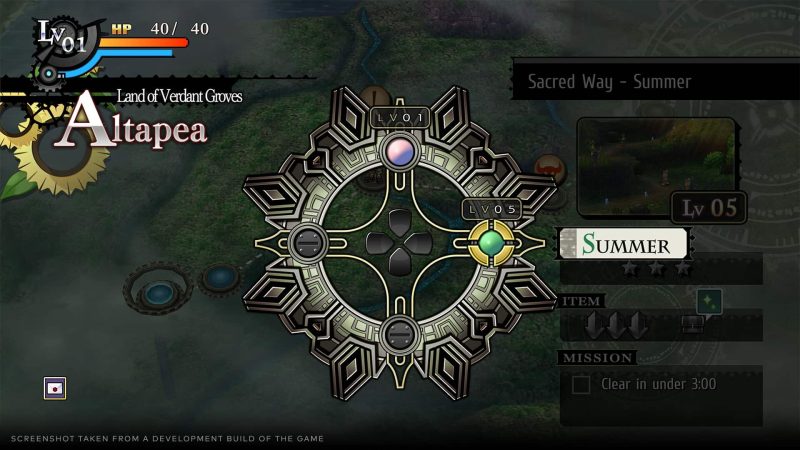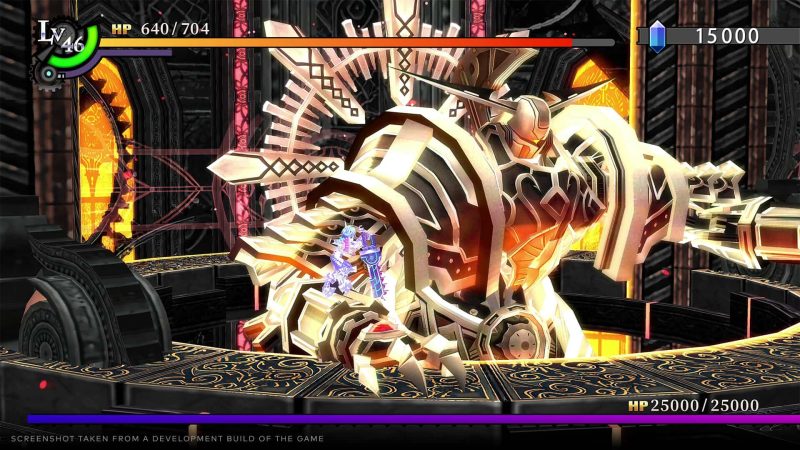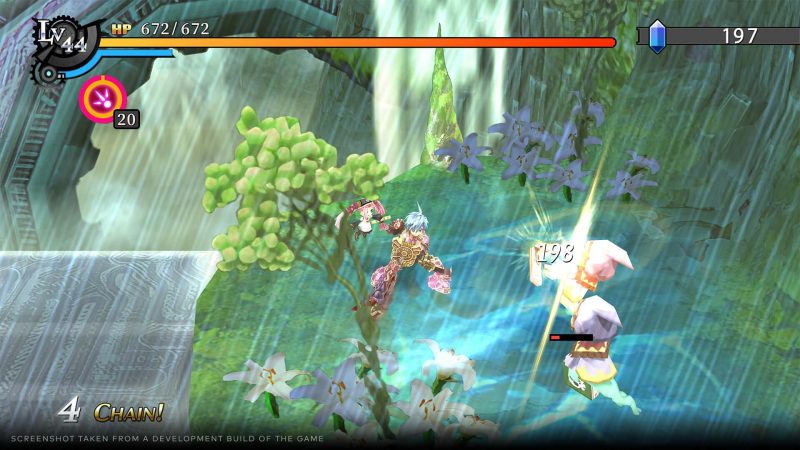The Legend of Nayuta: Boundless Trails PS4 Review – A handful of wonderful, long-awaited localizations have been released in the last couple years. Some of the most notable ones, like the Wii series exclusive Fatal Frame games, receive some enhancements and refinements; others such as Like A Dragon: Ishin! get a full-blown remake.
Then some come in their original forms, much like The Legend of Nayuta, Boundless Trails. The Legend of Nayuta originally released exclusively in Japan in 2012 for the PSP, and now modern consoles gamers finally get to add it to their libraries. This also stands as a spin-off entry into the Trails of Cold Steel/Trails In The Sky franchise.
The Legend of Nayuta: Boundless Trails PS4 Review – A Simplistic, Flawed, Yet Enjoyable Entry In The Trails Franchise
Much like most role-playing games before it, Nayuta begins in a small village with a boy looking for adventure that ultimately finds him. However, to mix things up, Nayuta’s best friend, Cryga, decides to head into the adventure on his own and tries to leave Nayuta behind. Since this is very uncharacteristic of Cryga, Nayuta follows him. This motivates him in two ways: find out what’s going on with Cryga and save the world.
The visuals are unavoidable, as they’re a showcase for less powerful hardware than what we have now. At the same time, the graphics possess a unique stylized look to them that helps keep them feeling unique instead of wholly dated. Still, this game looks like it came straight from a PSP, albeit with some visual cleanup to eliminate pixelation.
As a personal aside, most characters look like they have beady eyes, making many rather placid characters look peculiar or sometimes even psychotic. This likely looked better on a handheld, but the big screen makes many characters look a little weird.
Saying Random Statements
The soundtrack works well enough to be background music. It never takes the foreground but it never brings itself out enough to stand out. Tracks fit where they get used. What audibly stands out, though, is how the game delivers its voice work. Like other games in the Trails franchise, some sections receive full voice work and some don’t.
Also, like other entries, random statements get voiced in the middle of conversations. These statements are generally used to convey importance. However, I remember several times feeling like many other statements along the way were equally or more important than some of the voiced lines.
With this topic, an all-or-nothing approach would have better benefitted the final product: voice everything or voice nothing at all. Considering the fact that all the voice actors do a nice job, I would have preferred a full voiceover.
Simplicity
Now, there’s one system that truly shows this game was originally a portable game. Oddly enough, this system also works well to keep the game relevant in this home console space. Each new zone asks you to fulfill three tasks, with each completed task rewarding you with a star. This fits the portable formula to this day. However, these stars contribute to a greater whole that benefits Nayuta.
Nayuta holds a skill card to use as a tracker for his progress as a combatant. In practice, it’s a way to unlock new skills from your trainer. For every eight stars, you can learn a new attack. These simply expand the ways you can attack versus granting actual skills. Examples are an airborne downward strike or charged attack.
Your trainer remains in your hometown, which you can return to at any time. That’s another aspect of the game that shows this was a portable game first. The map of all four continents gives you fixed paths lined with stages, allowing you to jump around as you wish. This structure also gives you the chance to redo missions in order to collect all of the stars that improve Nayuta.
Arcade-Style Map
As the story continues, you gain the ability to change the seasons on each continent. This makes adjustments to each stage as well and grants you more stars to collect.
The story doesn’t follow the linear paths that the maps grant you. Instead, Nayuta provides a light Metroidvania game loop that has an almost arcade-like flavour. Several stages along the way block you off from certain sections of the stage until you learn the necessary skill to traverse the blockage. These particular attacks come from defeating bosses rather than from your trainer, so you don’t need to rely on clearing outside content to progress the story.
Apart from how you learn new attacks, the game doesn’t offer much else outside of the simple formula of levelling up and replacing the standard four pieces of equipment. Instead, the game relies on learning new attack combinations to use while in combat. This lack of depth may turn away some RPG fans.
Paced Combat
Equally so, someone new to the genre would benefit from starting here. The approach to character growth and game progression is straightforward without feeling dull. Plus, Nayuta makes for a nice change of pace in the Trails franchise without straying too far from what makes the game series appealing.
Plus, combat itself is more action-oriented, mimicking games like the Ys franchise. Instead of turn-based, you use Nayuta to dodge, jump, and attack in real-time. These inputs work as they should, but combat isn’t perfect. The biggest gripe comes from what feels like cheap hits.
Many enemies, including bosses, have attack animations that end up being bigger than they look. It looks like you clear the attack with a dodge but still take the hit. I’m not sure whether your hit box is too big or the attacks themselves are bigger than the appendage attacking you, but either way, it makes for a lot of damage. If you decide to play on the harder difficulty, you feel these cheap hits even more.
A Beginner-Friendly RPG
The Legend of Nayuta: Boundless Trails doesn’t have the kind of depth some might want in an RPG. Still, the gameplay loop and progression system all feel like many modern mobile games (but without the mindless repetition). What it lacks in complexity, it makes up for it by taking a more universal approach to the gameplay.
While flawed, combat is engaging without being complicated, and changing difficulties lets you cater the experience a bit more to your preference. Nayuta isn’t an entirely deep experience by any stretch, but its approach to simplicity helps streamline the experience into something enjoyable without feeling dull.
Review code kindly provided by publisher

